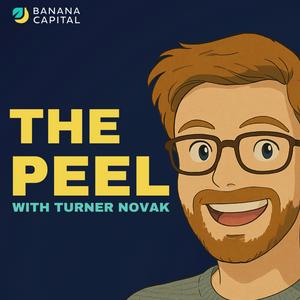Gary Tan is the President and CEO of Y Combinator.
YC is the startup accelerator behind companies like Airbnb, Stripe, Coinbase, Reddit, Twitch, and thousands more. According to Garry, they’ve invested in 20% of all startups worth $5B or more started since 2012.
Gary has lived every side of the YC ecosystem. He went through YC as a founder, later became a partner, started Initialized Capital where he backed companies like Coinbase and Instacart, and then returned to lead YC.
We walk through the different “eras” of YC, from the early Paul Graham and Jessica Livingston days in Cambridge, to scaling in San Francisco, to today’s push back toward in person community and what Gary calls “founder mode” for the organization itself.
We also talk about why the Bay Area still matters so much for startups, what’s happening with California taxes and policy, and why Gary has gotten more involved in local politics to keep it the best place for founders to build companies.
Then we go deep on the parts of startups people don’t talk about enough. Co-founder conflict, rage quitting, therapy and coaching, and why companies inevitably take on the personality and emotional patterns of their founders.
We also cover what YC looks for in applications, how the 13 week batch is structured, how Demo Day really works, how to choose the right investors, and what Gary thinks the next phase of YC looks like, including helping founders even after Series A.
At the end, Gary shares his personal AI workflow, including meta prompting, comparing outputs across models, and the tools he uses every day to think and build faster.
Try Numeral, the end-to-end platform for sales tax and compliance: https://www.numeral.com
Sign-up for Flex Elite with code TURNER, get $1,000: https://form.typeform.com/to/Rx9rTjFz
Timestamps:
(0:05) Moving from Winnipeg to California as a kid
(1:35) How YC interviews work
(2:55) The first batch in 2005
(6:46) Why YC moved from Boston to SF
(8:17) California’s Billionaire Tax
(11:00) Tech should care about public policies
(17:01) Going direct to your audience
(20:28) The 2nd Era of YC
(24:01) Rage quitting Palantir, learning to understand himself
(32:41) Co-founder conflict kills most startups
(35:15) Joining YC as a group partner
(37:22) Initialized Fund 1 (55x DPI)
(39:44) Why Garry went back to lead YC
(42:44) YC funds 20% of all $5B+ companies
(44:30) Lessons from Brian Chesky
(48:01) Garry’s thoughts on YC rejection
(51:41) How to get into YC
(58:03) What it’s like inside a 13-week YC batch
(1:02:23) 20% of YC is hard tech
(1:05:55) YC's 3rd era: founder mode, re-batching
(1:07:56) Escaping the matrix
(1:11:26) Garry's personal AI stack
(1:20:25) Tech optimism
Referenced
Y Combinator: https://www.ycombinator.com/
Initialized Capital: https://initialized.com/
Torch: https://torch.io/
Perplexity: https://www.perplexity.ai/
Anthropic: https://www.anthropic.com/
OpenAI: https://openai.com/
Airbnb: https://www.airbnb.com/
Kyle Vogt on his new startup: https://www.youtube.com/watch?v=XQoFbvyWEy8
Follow Aaron Levie on X: https://x.com/levie
Follow Gary
Twitter: https://x.com/garytan
LinkedIn: https://www.linkedin.com/in/garytan/
Follow Turner
Twitter: https://twitter.com/TurnerNovak
LinkedIn: https://www.linkedin.com/in/turnernovak
Subscribe to my newsletter to get every episode + the transcript in your inbox every week: https://www.thespl.it/


